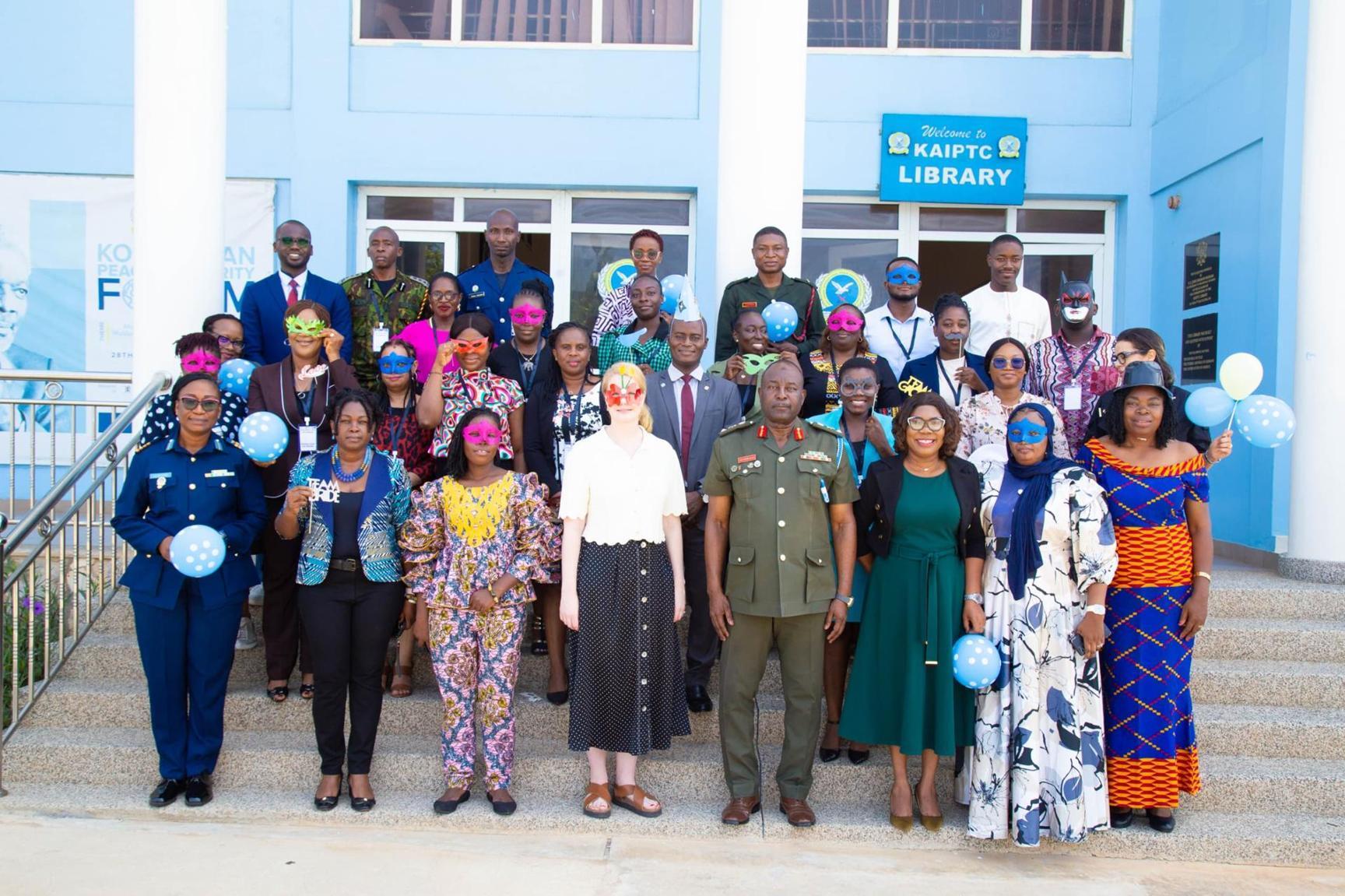Africa-Press – Ghana. The Kofi Annan International Peacekeeping Training Centre (KAIPTC) has opened the fourth edition of its Gender Advisers Course in Accra, aiming to deepen gender integration in peace and security efforts across Africa.
It is in collaboration with Sweden’s Folke Bernadotte Academy (FBA).
The week-long training, hosted at KAIPTC from May 26 to 30, brings together professionals from across the continent to equip them with practical tools and strategies to support gender mainstreaming within their organizations and operational activities.
This year’s course builds on previous sessions held in 2021, 2022, and 2023.
The course, supported by the Swedish International Development Cooperation Agency (SIDA), is being implemented through KAIPTC’s Women, Youth, Peace and Security Institute (WYPSI).
It is grounded in an extensive needs assessment of gender advisors and is designed to be both practical and strategic.
Participants are expected to complete the training with enhanced capacity to apply gender analysis tools, design gender strategies, and support their organizations in implementing the WPS agenda.
Brigadier General Ziblim Ayorrogo, Deputy Commandant of KAIPTC, who officially opened the course, emphasized the Centre’s commitment to advancing the Women, Peace and Security (WPS) agenda.
“Recognizing and addressing gender-based inequalities is essential to achieving long-term peace and security,” he said.
The Deputy Commandant said, “Despite notable progress, women and girls continue to face considerable impediments to participation and protection in conflict-affected areas.”
He noted that gender mainstreaming had become a vital requirement in modern peacekeeping and peacebuilding operations, as echoed in the United Nations Security Council Resolution 1325.
KAIPTC, he added, had embedded the WPS agenda as the third pillar of its current five-year strategic plan (2024–2028).
“This course equips Gender Advisers and Focal Points not only with skills and tools but also with the awareness of the uniqueness of their roles. It empowers them to make real impact in peace and security efforts,” Brig Gen Ayorrogo said.
The Gender Advisers Course, originally delivered in Sweden, has been contextualized and localized to meet the needs of African practitioners.
The training methodology blends facilitator-led sessions with interactive approaches, including role plays, simulations, and peer learning.
Ms. Emmicki Charlotta Roos, Senior Women, Peace and Security Specialist at the Folke Bernadotte Academy, in her keynote remarks, lauded the collaboration with KAIPTC and stressed the importance of gender equality in peacebuilding processes.
“Gender equality is not a luxury or an add-on – it is a prerequisite for effective peacebuilding, peacekeeping, and security,” Ms. Roos said.
She further stated, “Our task as gender advisors is more critical now than ever, especially in a world facing increasing fragility, armed conflicts, and a growing backlash against gender equality.”
She highlighted that the course was taking place at a time when the international community was grappling with new and more complex forms of insecurity, making the work of gender experts not only relevant but urgent.
“Across global institutions – whether in Ghana, Sudan, Gaza, or Ukraine – people’s lives are disrupted by conflict. Yet, we also face rising conservative resistance to gender equality in policy spaces, including at the UN. That makes our collective work more important and more demanding,” the WPS Specialist warned.
Ms. Roos also reminded participants that the WPS agenda had its roots in the tireless efforts of grassroots women’s organizations, particularly in conflict zones across Africa.
“We are continuing the legacy of generations of women and peace activists who fought for the adoption of UNSCR 1325. That is the source of our legitimacy,” she added.
She urged participants to support one another in their work and not shy away from being “the difficult voice in the room” asking questions others overlook.
“Change often comes with discomfort, and our job is to challenge the status quo with courage and clarity,” she said.
For More News And Analysis About Ghana Follow Africa-Press







